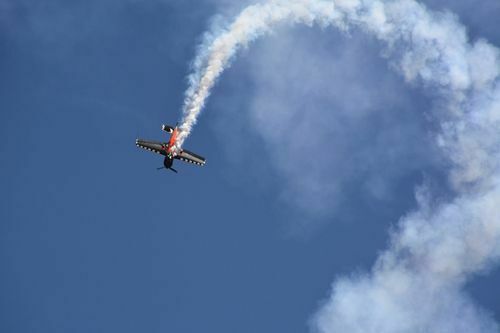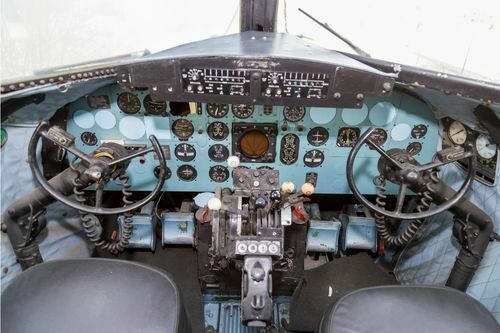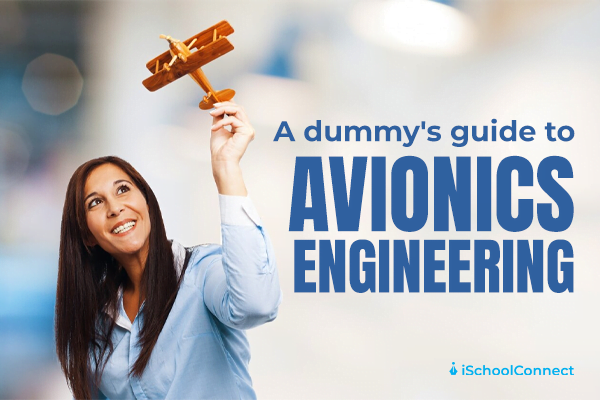Table of Contents
Traveling on an aircraft is exciting. You are full of emotions. You can be happy, nervous, enthusiastic, and curious. Once you are on board, you might feel overwhelmed as the flight is on the runway. There is nothing to fear. You are safe. The avionics engineer has taken care of it. He has programmed the electrical systems to ensure your safe journey. Read this blog to learn more about avionics engineering.
What is avionics engineering?
Avionics engineering is the study of electronic systems used in the aerospace industry. Avionics engineering is the amalgamation of the words ‘aviation’ and ‘electronics.
Avionics is required for all aerospace vehicles, including aircraft, satellites, and spacecraft. Avionic systems use a variety of functions, including navigation, communications, displays, and others.
Avionics engineers work directly with modern systems associated with internal electronics for aerospace vehicles to improve flight safety and fuel efficiency; however, the internal systems used in avionics engineering technology can be complex.
How to become an avionics engineer?

If you are interested in electronic systems, here are a few steps to help you become an avionics engineer.
Educational path
The first step to becoming an avionics engineer is to decide what type of education you want. While many options exist, such as earning a four-year degree or enrolling in a graduate program, many engineers gain experience on the job. Degrees in electronics engineering and aerospace engineering, including many relevant courses, benefit this role.
Many employers prefer a professional certification from the National Center for Aerospace and Transportation Technologies (NCATT).
Understanding avionics data processing and control systems will be critical to your role as an avionics engineer. It’s an exciting time in avionics, and the industry is growing stronger by the day!
You can also expect plenty of hands-on opportunities in a laboratory to learn more about avionics. Although you do not need a license to work as an avionics engineer, you should consider getting a Professional Engineering license. Many engineers, including avionics engineers, are trained and certified by the Federal Aviation Administration (FAA).
Go for internships
After your education, you can look into internships at various companies that offer avionics engineering jobs. It may help you determine if this is the right career and build your experience and resume.
Internships with aerospace companies, such as NASA, can provide valuable experience in spacecraft instrumentation, whereas internships with airplane manufacturers, such as Boeing, can provide experience working with aircraft instruments. Go for what interests you the most.
Get your license
You can pursue certification if you want to work as an aircraft mechanic. You can obtain this license by completing a training course and passing an exam. Because the exam includes both oral and written sections, you must be able to speak, write, and read fluently.
Apply for suitable positions
Next, look for entry-level engineering or aircraft mechanic jobs in your area. Both positions can help you gain valuable experience working on aircraft or spacecraft with highly trained teams. As you advance in your career, you can take on more responsibility confidently.
Apply for higher positions
After you gain your fair share of knowledge and practical experience and develop a resume, you can move to a higher position. You can apply directly to higher-level engineering or aircraft mechanic positions to advance your career while learning on the job. Apply for avionics engineer jobs, creating a resume highlighting your qualifications for this critical role.
Special skills needed for avionics engineering
While special skills aren’t required for most professional roles, many avionics engineers can benefit from having some of the following abilities, especially before enrolling in a specialized bachelor’s degree program.
When hiring avionics engineers, many employers look for the following notable skills-
- A talent for coding languages
- A fascination with computer systems
- Analytical and problem-solving abilities
- Strong professional engineering knowledge
- Strong communication and interpersonal skills
- Maintain confidentiality
- Excellent math skills
- Proficiency in writing
Job duties of avionics engineers

Every job has specific responsibilities you must adhere to at all costs. Avionics engineering jobs have their own set of duties.
Avionics engineers, also known as electronic engineers and engineering technicians, are responsible for many tasks. The prominent role of avionics engineers in the engineering industry ensures the safe operation of aerospace vehicles.
An avionics engineer’s work may also help reduce harmful energy costs, resulting in a positive environmental impact. As an avionics engineer, you can expect to have the following primary duties-
- Implement standard safety procedures for technical issues and routine maintenance.
- Manage the design, development, testing, and manufacturing of various avionics equipment, including internal systems.
- Repair aerospace avionics equipment according to necessity.
- Maintain safety standards.
- Increase flight safety and efficiency.
- Create design method acceptance criteria.
- Reduce high energy costs by implementing sustainable practices.
Avionics engineer salary
According to Glassdoor, the average salary for an avionics engineer is $93,735 in the United States. Your skills, experience, and employer will determine your salary package. The Bureau of Labor Statistics anticipates an 11% increase in job opportunities for avionics engineer positions by 2030.
Key takeaways
- The field of avionics engineering focuses on the electronic systems of aerospace vehicles and ensuring we have a safe flight.
- Avionics engineers usually need to opt for a four-year degree. Employers also prefer a certification from NCATT.
- Avionics engineers can also contribute to reducing harmful energy costs by implementing sustainable plans in electrical systems.
Did you find this blog informative? If so, please share your thoughts in the comments section below. Click here to reach out to us for more information on avionics engineering. We would be happy to assist you with your queries.
Liked this blog? Read next: Indian Air Force jobs | The best-paying and amazing ones for you!
FAQs
Q1. Is avionics engineering a good career option?
Ans- It has a broad scope and will grow in the future. Airlines, the air force, corporate research firms, the Defense Ministry, aviation companies, NASA, and many other organizations have job openings.
Q2. What is the salary of an avionics engineer at Boeing?
Ans Boeing Avionics Engineers have an annual salary of $84,000.
Q3. Which country is the best for avionics engineering?
Ans- The United States and the United Kingdom are among the best countries for avionics engineering.






